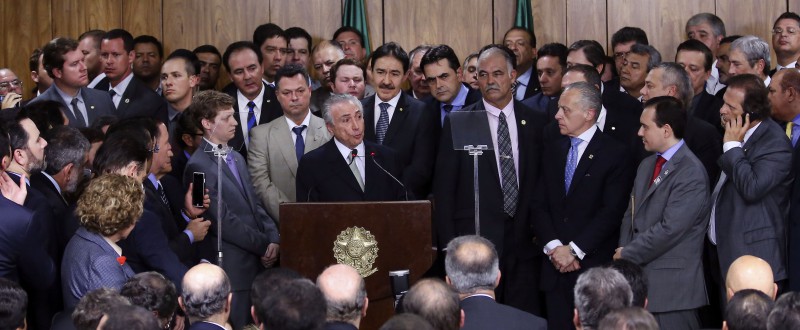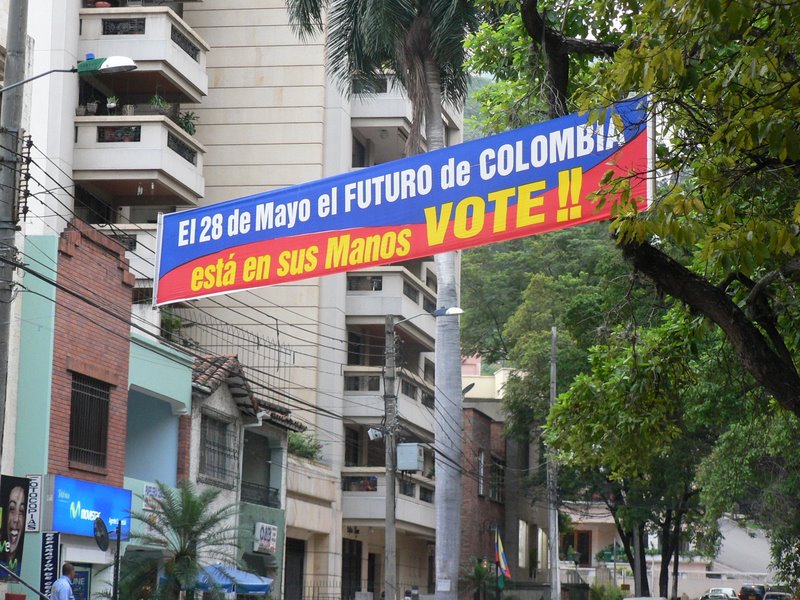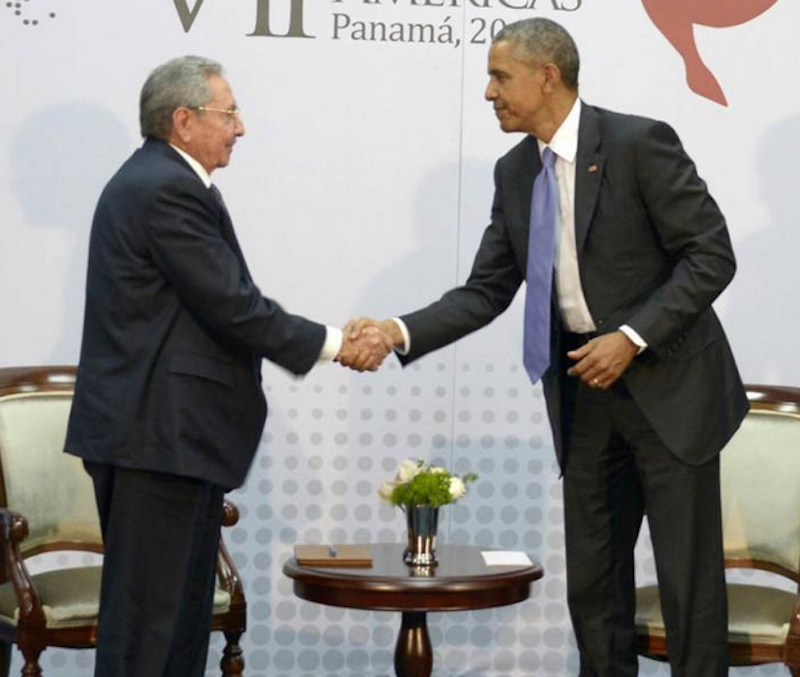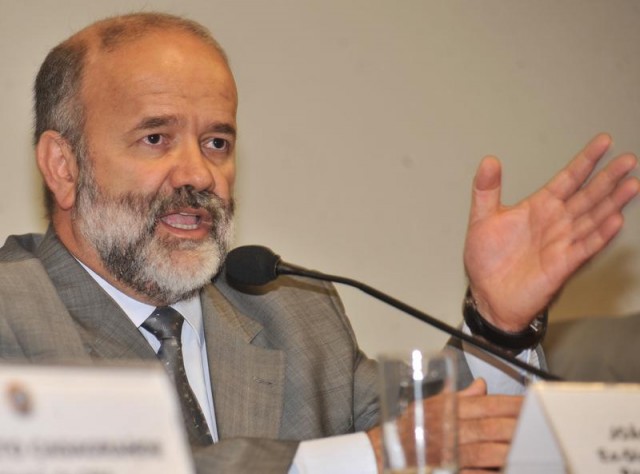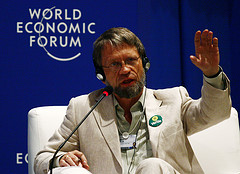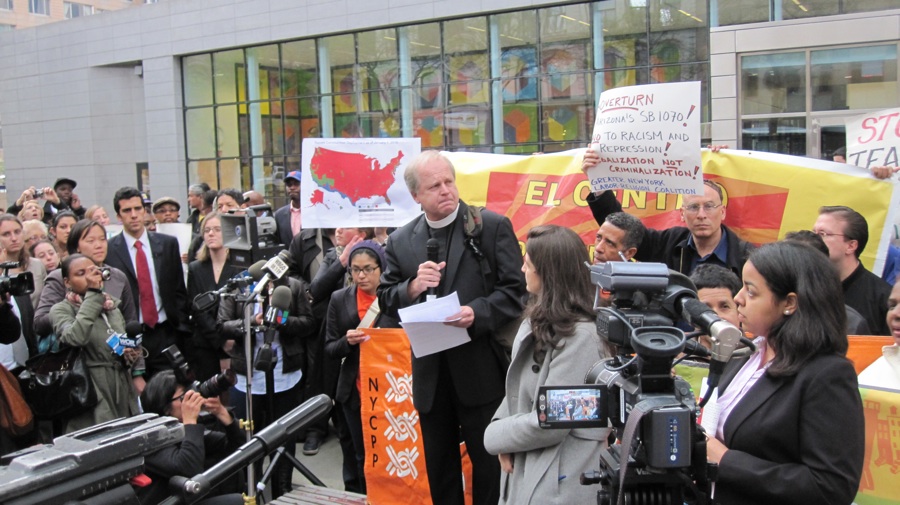
Latin America: Week in Review, Paraguay
Paraguayan President Fernando Lugo Sends 1,000 Troops and Police To Suppress Rebel Group
April 27, 2010 By Staff
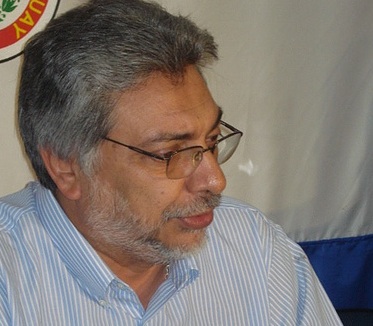
Paraguayan President Fernando Lugo.
Today in Latin America
Top Story — Paraguayan President Fernando Lugo sent an additional 1,000 troops and police Monday to the country’s borders with Brazil and Bolivia to track down an armed left-wing guerrilla group.
The country’s congress granted the Lugo administration special powers to hunt down the Paraguayan People’s Army (EPP), a group linked to Colombia’s FARC guerrillas and who are blamed for an attack that killed four people last week.
“The concrete objective is to allow the military to undertake armed operations, which wouldn’t be possible without (the special powers),” Lugo said, according to Reuters.
The constitutional order from the Paraguayan Congress declared a 30-day emergency for a five-state region where the EPP is suspected to operate and allows Lugo to order arrests and the transfer of suspects without court approval.
Earlier this year Paraguayan soldiers were deployed to this region to aid local police forces in combating the EPP, who are also allegedly involved with marijuana cultivation in Paraguay.
The EPP, which is suspected to have about 100 members, traces its origins to trainee priests in 1992. The group advocates for socialist revolution.
Just Published at the Latin America News Dispatch
- Arizona’s governor Jan Brewer signed a strict new immigration law on Friday.
- With the conference under way in Cochabamba, Nikolas Kozloff, author of No Rain in the Amazon: How South America’s Climate Affects the Entire Planet, asks how climate change will affect El Niño — an irregular weather pattern that periodically wreaks havoc on the Andes.
- In the wake of a report criticizing 287(g) and similar programs that deputize local officials to enforce federal immigration law, we wondered what supporters of these programs consider their biggest successes. So Alison Bowen asked around to find out who’s been detained and deported in these programs. She contacted Immigration and Customs Enforcement (ICE), which trains the officers, and the Federation for American Immigration Reform (FAIR) and the Center for Immigration Studies, both groups that support 287(g). Read the latest post at her blog Beyond Borders to find out what they told her.
Headlines from the Western Hemisphere
North America
- A Spanish matador, who was severely gored during a bullfight in Aguascalientes, Mexico, is in intensive care after reconstructive surgery to his femoral artery and vein.
- Mexico City has created an urban biking system to cut back on air pollution in a city that was once called “the smoggiest city on the planet.”
- In a blog piece, Republican Sen. John McCain’s daughter Meghan spoke out against the controversial new immigration law in Arizona.
Caribbean
- Haitian President René Préval said the country would need international aid to organize future elections.
- Government supporters insulted Cuba’s Ladies in White for seven hours, during a protest to free political prisoners accused of collaborating with Washington against the revolutionary government. The protest was held during the country’s municipal elections, in which more than 94 percent of eligible voters participated, according to Cuban state media.
Central America
- Human rights monitors from the Inter-American Human Rights Commission will investigate the killings of six journalists in Honduras in recent months.
- Guatemala’s Santiaguito volcano spewed sand and ash over a large area of western Guatemala on Monday.
- Nicaraguan lawmakers reentered the National Assembly late last week after demonstrations aimed at overturning a presidential decree.
- Work in a Costa Rican gold mine has been stalled by environmental groups who argue the mine is detrimental to local plant and animal life.
- Panama’s ex-dictator Manuel Noriega was extradited to France after serving a U.S. sentence for drug trafficking. A new trial awaits him in France, along with the possibility of 10 years in prison.
Andes
- The International Committee of the Red Cross said that Colombians in rural regions of the country who have been caught in the civil conflict there are in danger of being forgotten.
- An alleged key figure in a drug trafficking, right-wing militia group in Colombia was captured by police in the northern state capital Montería.
- The U.S. Securities and Exchange Commission accused a former U.S. oil executive of bribing Venezuelan oil officials to secure extensions of three drilling contracts.
- Venezuelan President Hugo Chávez said his country might remain in a recession through 2010, but that citizens should not worry.
- 1,000 doses of the swine flu vaccine have been stolen in Peru, according to the country’s health ministry.
- Ecuador’s Central Bank president plans to meet with U.S. Treasury Department and Federal Reserve representatives to discuss concerns about Ecuador’s relationship with Iran.
Southern Cone
- Brazil’s President Luiz Inácio Lula da Silva said it would be “insane” to abandon the hydroelectric dam causing controversy among international environmental groups and local indigenous groups because the alternative could be far more damaging.
- A U.S. judge denied the requests of bondholdhers to suspend or disapprove Argentina’s $20 billion debt swap.
- Chile’s Atacama desert was chosen as Europe’s building site for the world’s largest telescope.
Image: Fernando Lugo APC @ Flickr.
